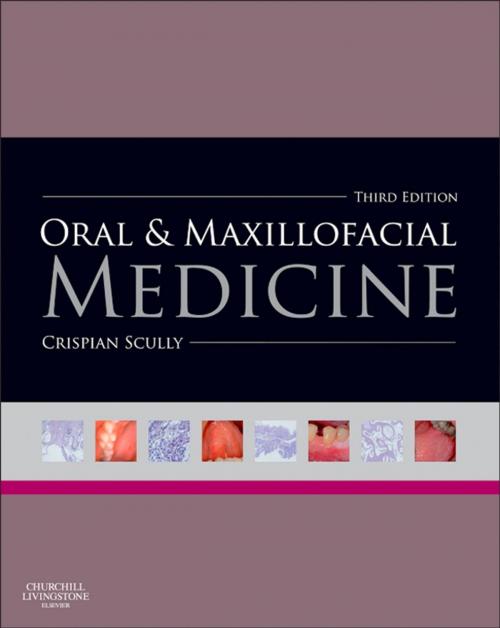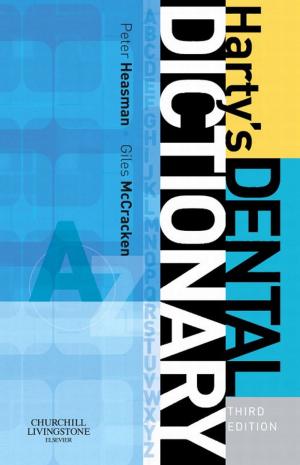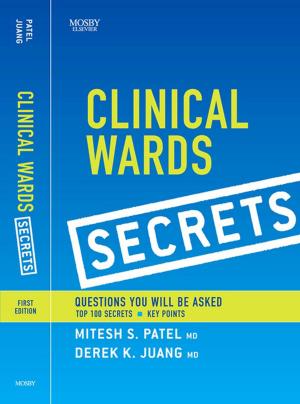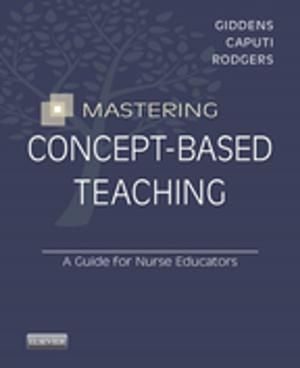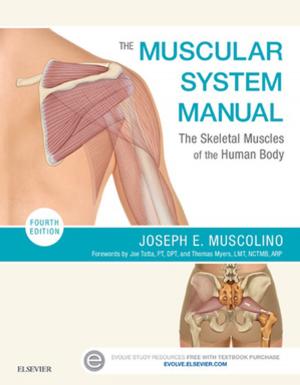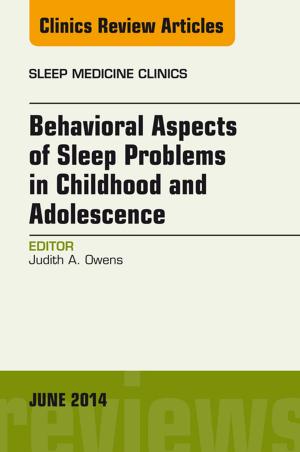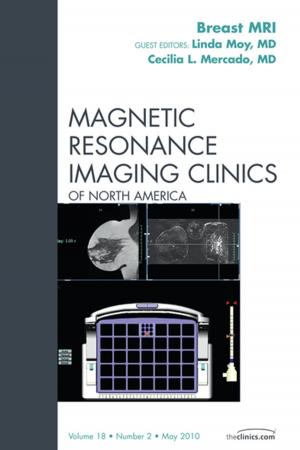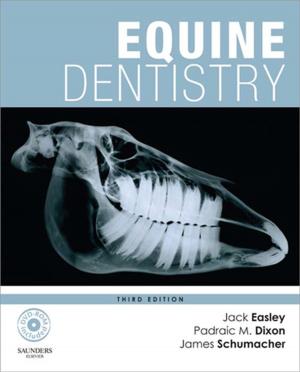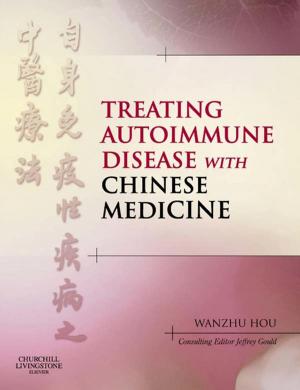Oral and Maxillofacial Medicine - E-Book
The Basis of Diagnosis and Treatment
Nonfiction, Health & Well Being, Medical, Dentistry| Author: | Crispian Scully, MD, PhD | ISBN: | 9780702052057 |
| Publisher: | Elsevier Health Sciences | Publication: | November 26, 2012 |
| Imprint: | Churchill Livingstone | Language: | English |
| Author: | Crispian Scully, MD, PhD |
| ISBN: | 9780702052057 |
| Publisher: | Elsevier Health Sciences |
| Publication: | November 26, 2012 |
| Imprint: | Churchill Livingstone |
| Language: | English |
The new edition of this highly successful volume continues to offer readers with a systemized and objective approach to the practice of oral and maxillofacial medicine.
Fully updated throughout with over 100 new photographs and artworks, Oral and Maxillofacial Medicine 3e presents a straightforward, easy-to-read guide to the successful diagnosis and treatment of the most common and potentially serious disorders seen in clinical practice. Maintaining a strong patient-centred approach throughout, the book also explores relevant systemic disorders and includes a reference section on eponymous and other conditions to ensure completion of the subject area. Full treatment options are given – including when to refer to medical, oncology or surgical colleagues – together with a comprehensive section on adverse drug reactions.
Prepared by an author of international renown, this clearly written and beautifully illustrated book includes a wealth of anatomical artwork, treatment algorithms, clinical photographs, tables and ‘pull out’ boxes as well as sample ‘Patient Information Sheets’.
Winner of the 2004 RSM/Society of Authors Book Award in the category of ‘New Authored Book’, and placed Highly Commended in the BMA Medical Book Awards 2009, this volume is ideal for senior dental students, dental practitioners and for trainees and practitioners in oral medicine, surgery, and pathology in particular.
-
Allows the reader to adopt a systematic approach to history taking
-
Explains how to examine patients and their oral lesions systematically to start formulating differential diagnoses
-
Identifies which sites may be affected by the presenting condition and what to look for at the sites
-
Explains when clinical investigations are indicated, which are appropriate, and how to perform them
-
Shows the reader how to interpret the findings of routine clinical investigations and understand the potential implications for the patient
-
Identifies relevant follow-up questions that may further clarify the findings of the clinical examination and refocus the history
-
Explains how to recognise the scope of oral and maxillofacial diseases and the importance of their medical management in addition to the traditional dental focus of the discipline
-
Shows the reader how to identify lesions and understand their potential implications for the patient
-
Explains how to advise the patient about the aetiology of oral lesions and their predisposing factors
-
Identifies a range of therapeutic options for the patient and emphasises the need for regular review and re-appraisal of the condition
-
Provides an understanding of how treatment may impact, positively or negatively, upon the condition
-
Identifies the need to refer for advice, investigations or treatment by dental, medical or surgical specialists
-
Shows the reader how to recognise the importance of close liaison with colleagues in other disciplines, particular imaging, medicine, pathology and surgery
-
Text now thoroughly clarified and updated, including revised Further Reading and websites
-
Improved section on potential malignancies and cancer
-
Provides additional information on the genetic influences of many conditions
-
Contains an expanded section on therapeutics, including emergent therapies, as well as additional information on drug interactions and contraindications
The new edition of this highly successful volume continues to offer readers with a systemized and objective approach to the practice of oral and maxillofacial medicine.
Fully updated throughout with over 100 new photographs and artworks, Oral and Maxillofacial Medicine 3e presents a straightforward, easy-to-read guide to the successful diagnosis and treatment of the most common and potentially serious disorders seen in clinical practice. Maintaining a strong patient-centred approach throughout, the book also explores relevant systemic disorders and includes a reference section on eponymous and other conditions to ensure completion of the subject area. Full treatment options are given – including when to refer to medical, oncology or surgical colleagues – together with a comprehensive section on adverse drug reactions.
Prepared by an author of international renown, this clearly written and beautifully illustrated book includes a wealth of anatomical artwork, treatment algorithms, clinical photographs, tables and ‘pull out’ boxes as well as sample ‘Patient Information Sheets’.
Winner of the 2004 RSM/Society of Authors Book Award in the category of ‘New Authored Book’, and placed Highly Commended in the BMA Medical Book Awards 2009, this volume is ideal for senior dental students, dental practitioners and for trainees and practitioners in oral medicine, surgery, and pathology in particular.
-
Allows the reader to adopt a systematic approach to history taking
-
Explains how to examine patients and their oral lesions systematically to start formulating differential diagnoses
-
Identifies which sites may be affected by the presenting condition and what to look for at the sites
-
Explains when clinical investigations are indicated, which are appropriate, and how to perform them
-
Shows the reader how to interpret the findings of routine clinical investigations and understand the potential implications for the patient
-
Identifies relevant follow-up questions that may further clarify the findings of the clinical examination and refocus the history
-
Explains how to recognise the scope of oral and maxillofacial diseases and the importance of their medical management in addition to the traditional dental focus of the discipline
-
Shows the reader how to identify lesions and understand their potential implications for the patient
-
Explains how to advise the patient about the aetiology of oral lesions and their predisposing factors
-
Identifies a range of therapeutic options for the patient and emphasises the need for regular review and re-appraisal of the condition
-
Provides an understanding of how treatment may impact, positively or negatively, upon the condition
-
Identifies the need to refer for advice, investigations or treatment by dental, medical or surgical specialists
-
Shows the reader how to recognise the importance of close liaison with colleagues in other disciplines, particular imaging, medicine, pathology and surgery
-
Text now thoroughly clarified and updated, including revised Further Reading and websites
-
Improved section on potential malignancies and cancer
-
Provides additional information on the genetic influences of many conditions
-
Contains an expanded section on therapeutics, including emergent therapies, as well as additional information on drug interactions and contraindications
